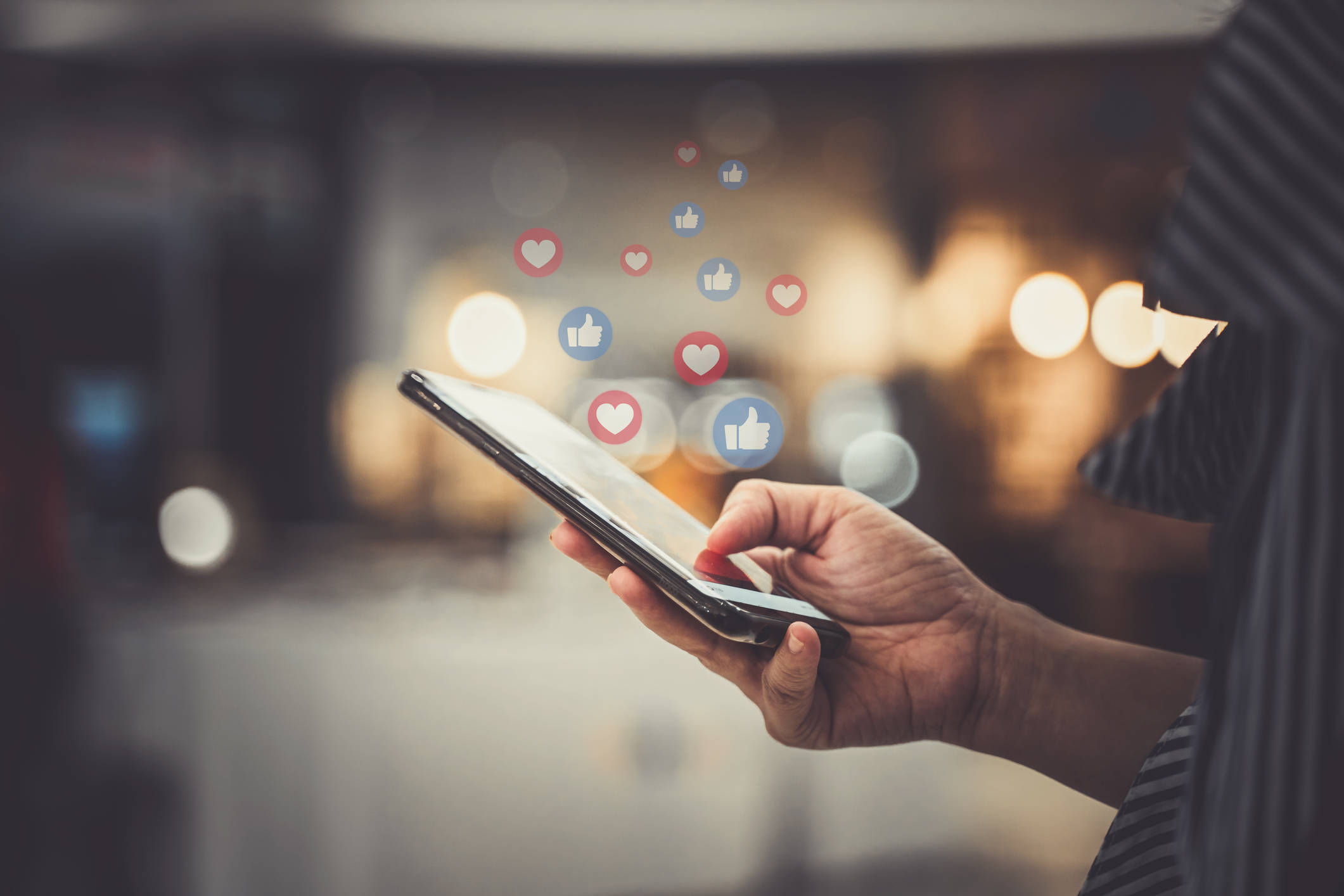Does having a cell phone before age 13 affect mental health? A study suggests it can contribute to suicidal thoughts and low self-esteem.

Owning a smartphone before age 13 is associated with poorer mental health and well-being in early adulthood , according to a global study that included data from more than 100,000 young people.
The study, published in the peer-reviewed Journal of Human Development and Capabilities , found that 18- to 24-year-olds who received their first smartphone at age 12 or earlier were more likely to report suicidal thoughts, aggression, detachment from reality, poorer emotional regulation, and low self-esteem .
The data also show that these effects of early smartphone ownership are strongly associated with early access to social media and an increased risk of cyberbullying, sleep disturbances, and poor family relationships in adulthood.
Based on these worrying results, a team of experts from the scientific organization Sapien Labs , which houses the world's largest database on mental well-being, the Global Mind Project - from which the data for this research comes - called for urgent measures to protect the mental health of future generations.
"Our data indicate that early smartphone ownership—and the associated social media access—is linked to profound changes in mental health and well-being in early adulthood," said lead author Dr. Tara Thiagarajan , a neuroscientist and founder and chief scientific officer of Sapien Labs.
According to Thiagarajan, these correlations are mediated by several factors, such as access to social media, cyberbullying, sleep disturbances, and poor family relationships, which lead to symptoms in adulthood that are not the traditional mental health symptoms of depression and anxiety and that may be missed in studies using standard filters. These symptoms of increased aggression, detachment from reality, and suicidal thoughts may have significant social consequences as their rates increase in younger generations .
"Based on these findings, and given that the age of first smartphone ownership is now well below 13 worldwide, we urge policymakers to take a precautionary approach, similar to regulations on alcohol and tobacco , by restricting smartphone access for children under 13, mandating digital literacy education, and enforcing corporate accountability," she said.

Since the early 2000s, smartphones have transformed the way young people connect. Photo: iStock
Since the early 2000s, smartphones have transformed the way young people connect, learn, and form their identities. However, these opportunities are accompanied by growing concerns about how AI-powered social media algorithms can amplify harmful content and encourage social comparison, as well as impact other activities such as face-to-face interaction and sleep.
Although many social media platforms set a minimum age of 13, enforcement is inconsistent. Meanwhile, the average age at which a child acquires his or her first smartphone continues to decline, and many children spend hours a day on their devices.
Currently, the international landscape surrounding banning phones in schools is, at least, uneven. In recent years, several countries have banned or restricted cell phone use in institutions, including France, the Netherlands, Italy, and New Zealand. The results of these measures are limited, although a study commissioned by the Dutch government found increased concentration among students. This month, policymakers in New York announced it would become the largest U.S. state to ban smartphones in schools, joining places like Alabama, Arkansas, Nebraska, North Dakota, Oklahoma, and West Virginia, which have passed laws requiring schools to have policies that at least limit smartphone access.
In general, previous studies on screen time, social media, and smartphone access and various mental health outcomes have shown negative effects, but also contradictory results, making it difficult for policymakers, schools, and families to address this issue. This may be due to the use of filters that overlook critical associated symptoms.
The results of the study For this new analysis, the Sapien team drew data from its Global Mind Project and used the Mind Health Quotient (MHQ)—a self-assessment tool that measures social, emotional, cognitive, and physical well-being—to generate a global mental health score.
Their results showed that:
- Specific symptoms most strongly associated with early smartphone ownership include suicidal thoughts, aggression, detachment from reality, and hallucinations.
- Young adults who acquired their first smartphone before age 13 scored lower on the MHQ, which progressively decreased with age. For example, those who acquired a smartphone at age 13 scored an average of 30, while those who acquired one at age five only scored 1.
- Consequently, the percentage of people considered distressed or struggling (with scores indicating five or more severe symptoms) increased by 9.5% for women and 7% for men. This pattern was repeated across all regions, cultures, and languages, pointing to a critical window of increased vulnerability.
- This lower sense of belonging is also associated with lower self-image, self-esteem and confidence, and emotional resilience among women, and with lower stability and calm, self-esteem, and empathy among men.
Further analysis indicated that early access to social media accounts for about 40% of the association between childhood smartphone ownership and later mental health, while poor family relationships (13%), cyberbullying (10%), and sleep disturbances (12%) also play a significant role.
Researchers acknowledge that the COVID-19 pandemic may have magnified these patterns, but the consistency of these trends across global regions suggests a broader impact on the development of early access to smartphones.

Symptoms include suicidal thoughts, aggression, and detachment from reality. Photo: iStock
Although current data do not yet demonstrate a direct causal relationship between early smartphone ownership and later mental health and well-being, which is a limitation of the article, the authors argue that the magnitude of potential harm is too great to ignore and warrants a preemptive response.
Recommendations Experts recommend that policymakers address four key areas:
- Demand mandatory education on digital literacy and mental health.
- Strengthen the active identification of age violations on social media and ensure meaningful consequences for tech companies.
- Restrict access to social media platforms.
- Apply graduated access restrictions for smartphones.
"Taken together, these policy recommendations aim to safeguard mental health during critical periods of development," says Dr. Thiagarajan, whose research focuses on the impact of the environment on the brain and mind, with an interest in understanding and enabling the productive evolution of the human mind and human systems.
"Its implementation requires substantial political and social will, effective enforcement, and a multi-stakeholder approach, but there are successful precedents. For example, in the United States, underage access to and consumption of alcohol is regulated through a combination of parental, commercial, and corporate responsibility."
And concludes, "Our data suggest that childhood smartphone ownership—an early gateway to AI-driven digital environments—is profoundly diminishing mental health and well-being in adulthood, with profound consequences for individual agency and societal flourishing."
"At first, I was surprised by the strength of the results. However, when considered properly, it begins to make sense that the developing minds of younger people are more compromised by the online environment, given their vulnerability and lack of worldly experience," says Dr. Thiagarajan.
"That said, I think it's also important to note that smartphones and social media aren't the only assault on mental health and the crisis facing younger adults . They explain some of the overall decline, but not all. Now, while more research is needed to unravel the causal mechanisms, waiting for compelling evidence against these population-level findings unfortunately risks missing the window for timely, preventative action," she notes.
eltiempo


%3Aformat(jpg)%3Aquality(99)%3Awatermark(f.elconfidencial.com%2Ffile%2Fa73%2Ff85%2Fd17%2Fa73f85d17f0b2300eddff0d114d4ab10.png%2C0%2C275%2C1)%2Ff.elconfidencial.com%2Foriginal%2F178%2F631%2F14e%2F17863114e5f2837cc357d1ca628557d9.jpg&w=1280&q=100)

%3Aformat(jpg)%3Aquality(99)%3Awatermark(f.elconfidencial.com%2Ffile%2Fa73%2Ff85%2Fd17%2Fa73f85d17f0b2300eddff0d114d4ab10.png%2C0%2C275%2C1)%2Ff.elconfidencial.com%2Foriginal%2F35a%2F82d%2F0e2%2F35a82d0e243464315ef86cfb4ca126bf.jpg&w=1280&q=100)
